SUMMARY
- Graphika, a company that monitors online communities for government agencies, began collecting data on social media users sharing “disinformation” about Covid-19 two weeks before the World Health Organization even knew of an outbreak.
- The private firm, which has received millions in Pentagon grants and contracts, targeted “US right-wing” communities as the top disinfo threat, right at Covid’s outset.
- Graphika is staffed by former DOD, CIA and NSA officials, and played a key role in censoring the pandemic via the Virality Project, partnered with the federal government.
Graphika, Inc., a small but influential social media monitoring and censorship firm that has received nearly $7 million in grants and contracts from the US Department of Defense (DOD), began tracking online “conspiracy theories” about Covid-19 on December 16, 2019 – just four days after the first patients reported symptoms in Wuhan, China, and two weeks before the World Health Organization (WHO) was even informed about the virus outrbreak.
As revealed by Graphika’s 35-page public report released in April 2020, Graphika began “data collection” of “global conversations” containing “conspiracy theories” about Covid origins on December 16, 2019:
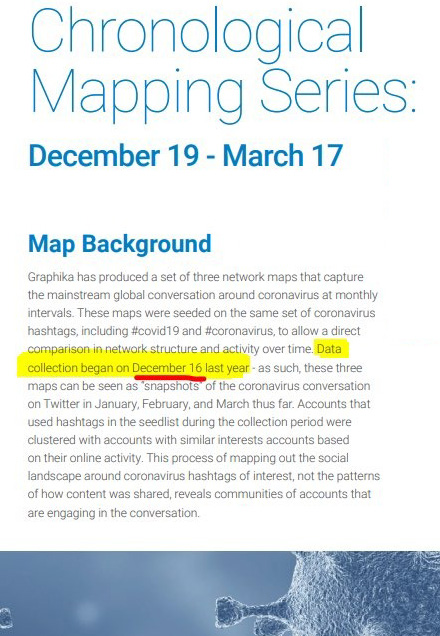
The official CDC.gov timeline shows the first cluster of patients in Wuhan, China began to experience an atypical pneumonia-like illness on December 12, 2019 — meaning Graphika’s social media “disinfo data collection” work began just four days later. WHO was not informed of Wuhan’s outbreak until December 31, 2019 – a full two weeks after Graphika had already being monitoring social media conspiracy theories about the atypical virus:
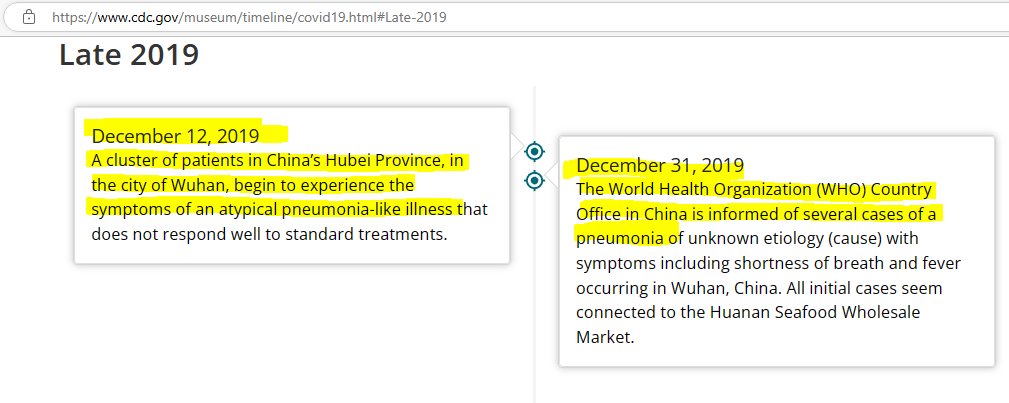
Chinese authorities in Wuhan did not even identify that the pneumonia-like symptoms of the hospital patients in Wuhan were rather a novel coronavirus until January 7, 2020:
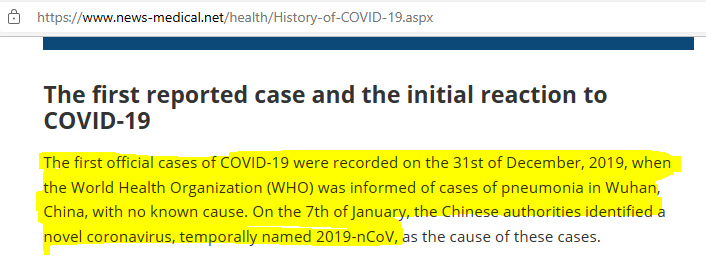
The WHO did not even name the virus “Covid-19” until February 11, 2020, and did not officially declare a pandemic until March 11, 2020. Yet predating all these events, Graphika was closely surveilling and working to neutralize what obscure Twitter and Facebook communities were saying online about the virus’s origins – all while categorizing citizen accounts by political affiliation, ostensibly to monitor their potential for political mobilization on the basis of shared beliefs.
The disinfo firm used the data they collected on US citizens and voices around the world to create a “network map” of “the global online conversation surrounding the coronavirus pandemic.”
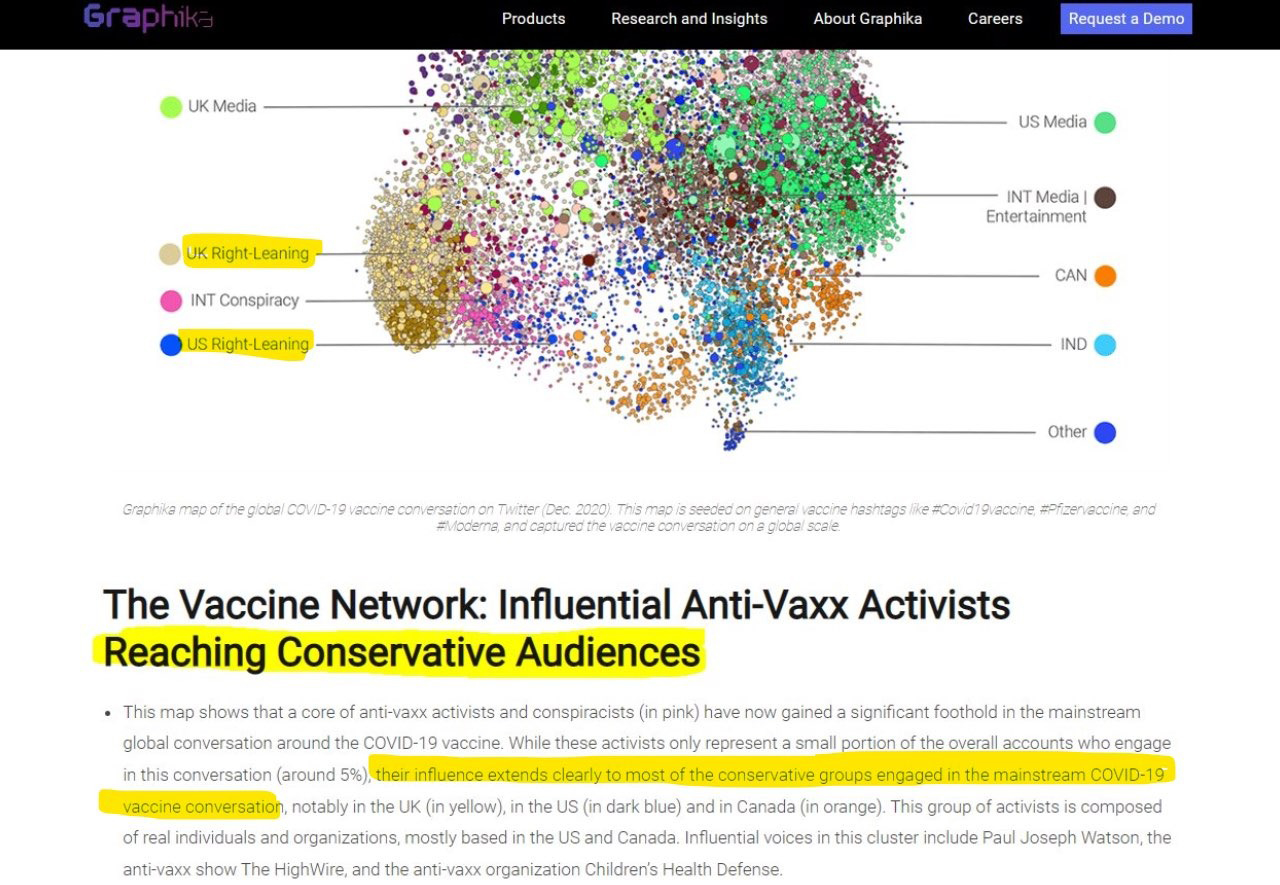
Graphika repeatedly identifies “right-wing” accounts (54 times in total, four on the summary page alone) as primarily responsible for “propagate[ing] polarizing and at times blatantly false narratives.”
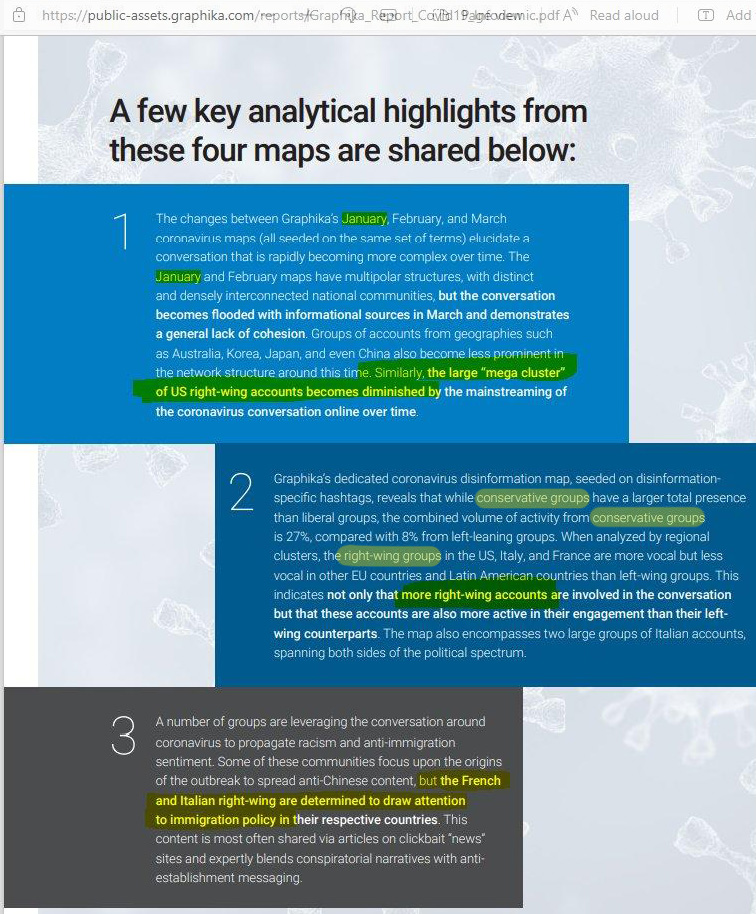
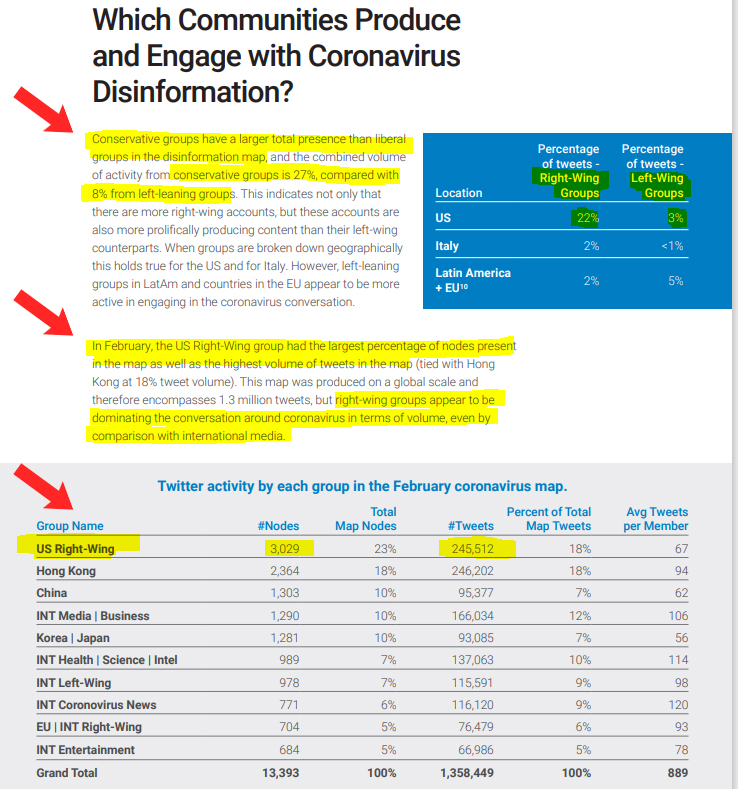
Lest there be any doubt about Graphika’s political bias, the report lists “U.S. Right Wing” as its own specific disinformation group, whereas the report mentions “left-wing media,” “Resist” and “anti-Trump” groups as predominately involved in driving “positive online communications.”
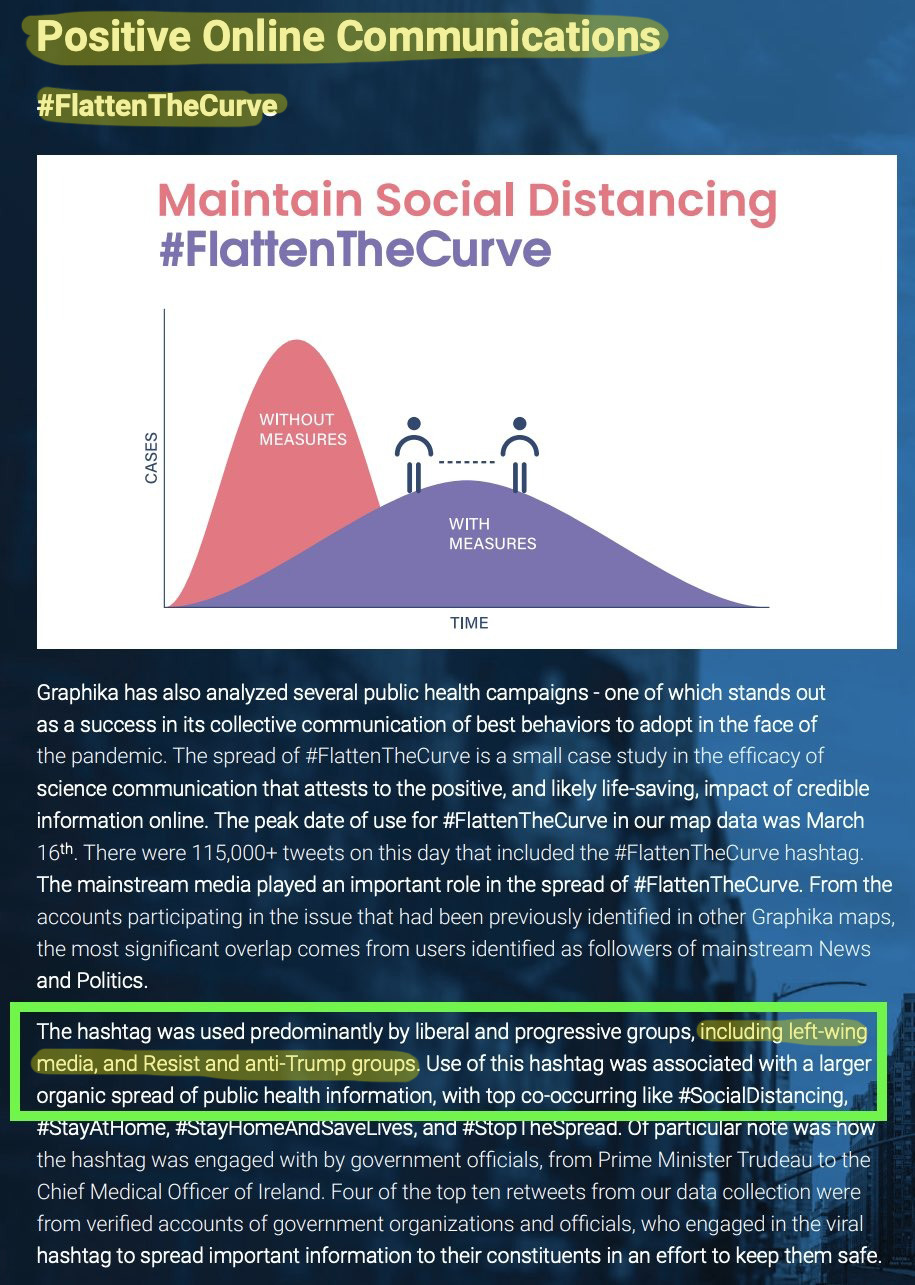
Graphika also takes special care to track how Bill Gates and George Soros contextualized by so-called “U.S. Right Wing” disinformation:
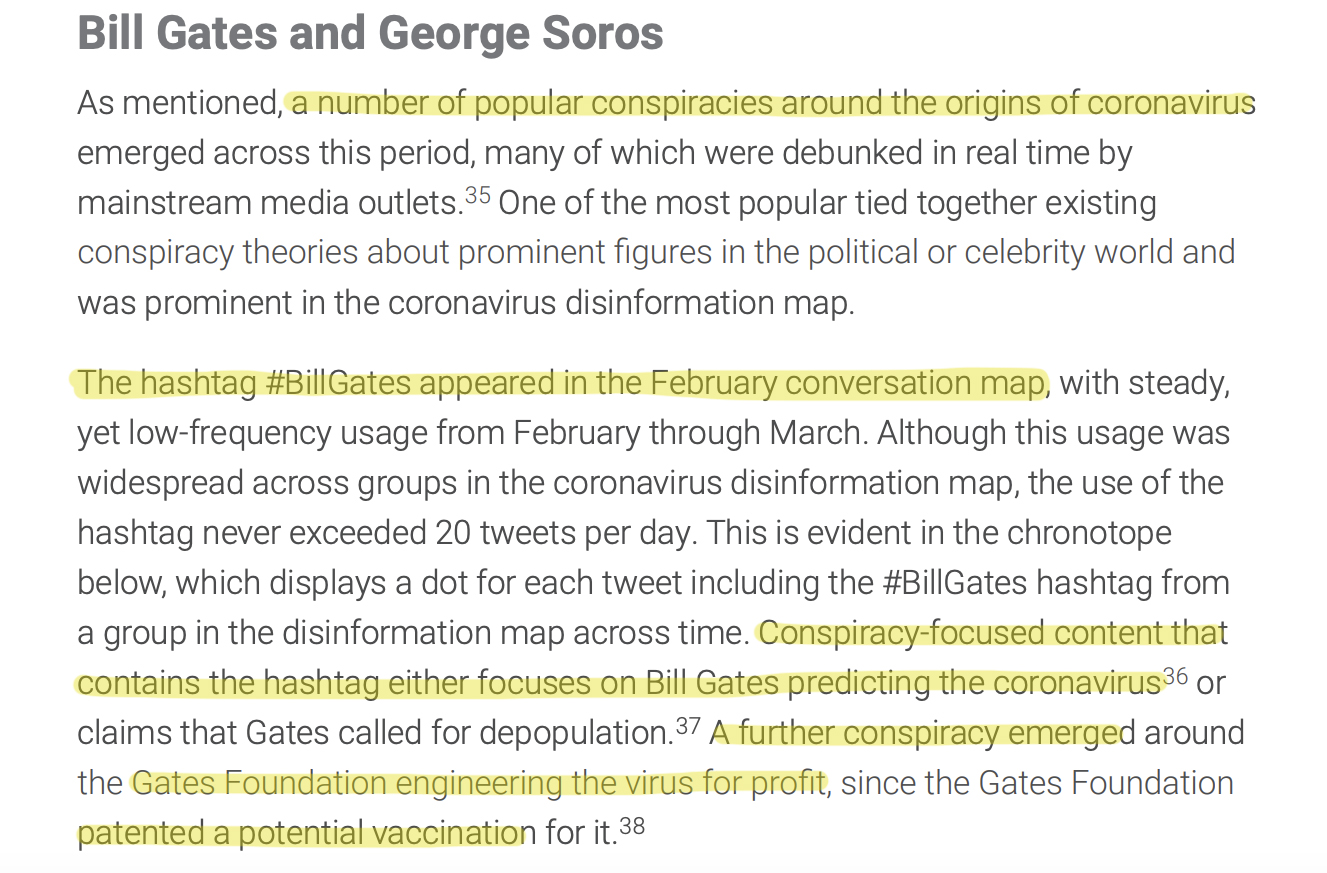
What exactly lands someone in the category of spreading “Covid disinformation,” according to Graphika? For prominent Chinese human rights activist Jennifer Zeng, it was “frequently shar[ing] Epoch Times articles.” For exiled Chinese billionaire and political activist Guo Wengui, it was questioning the Chinese Communist Party’s virus death toll figures. Both Zeng and Wengui land in Graphika’s “conspiracy community” of “anti-CCP activists.”
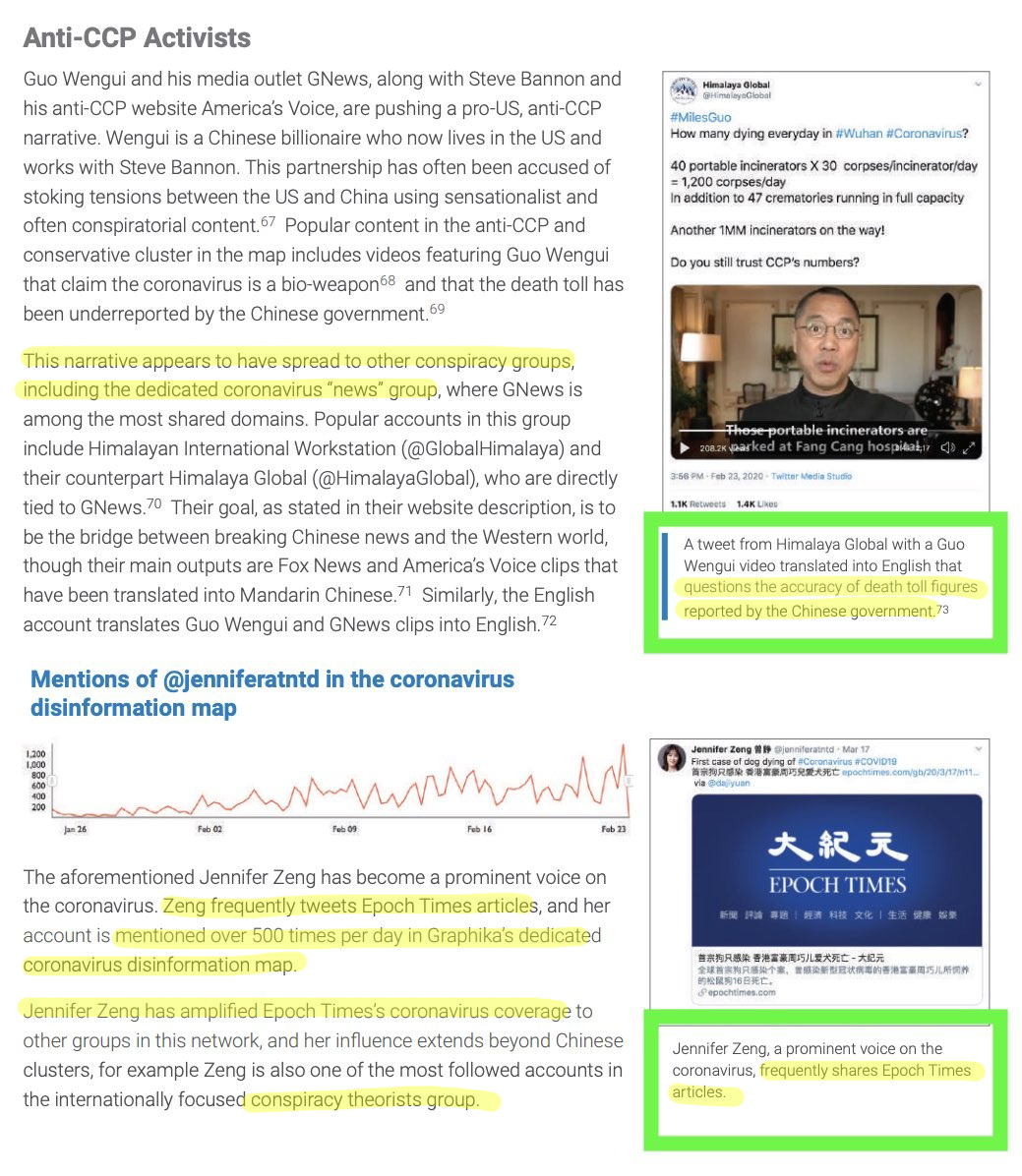
But the April 2020 report wasn’t nearly the end of Graphika’s Covid censorship work. As Twitter Files reporting from Matt Taibbi revealed, Graphika wrote a subsequent report sent to Twitter encouraging them to take action to throttle or ban the alleged misinformation and disinformation. There, the DOD-funded disinfo firm sought to shield Anthony Fauci from criticism in much the same way it had done earlier to shield Bill Gates and George Soros:
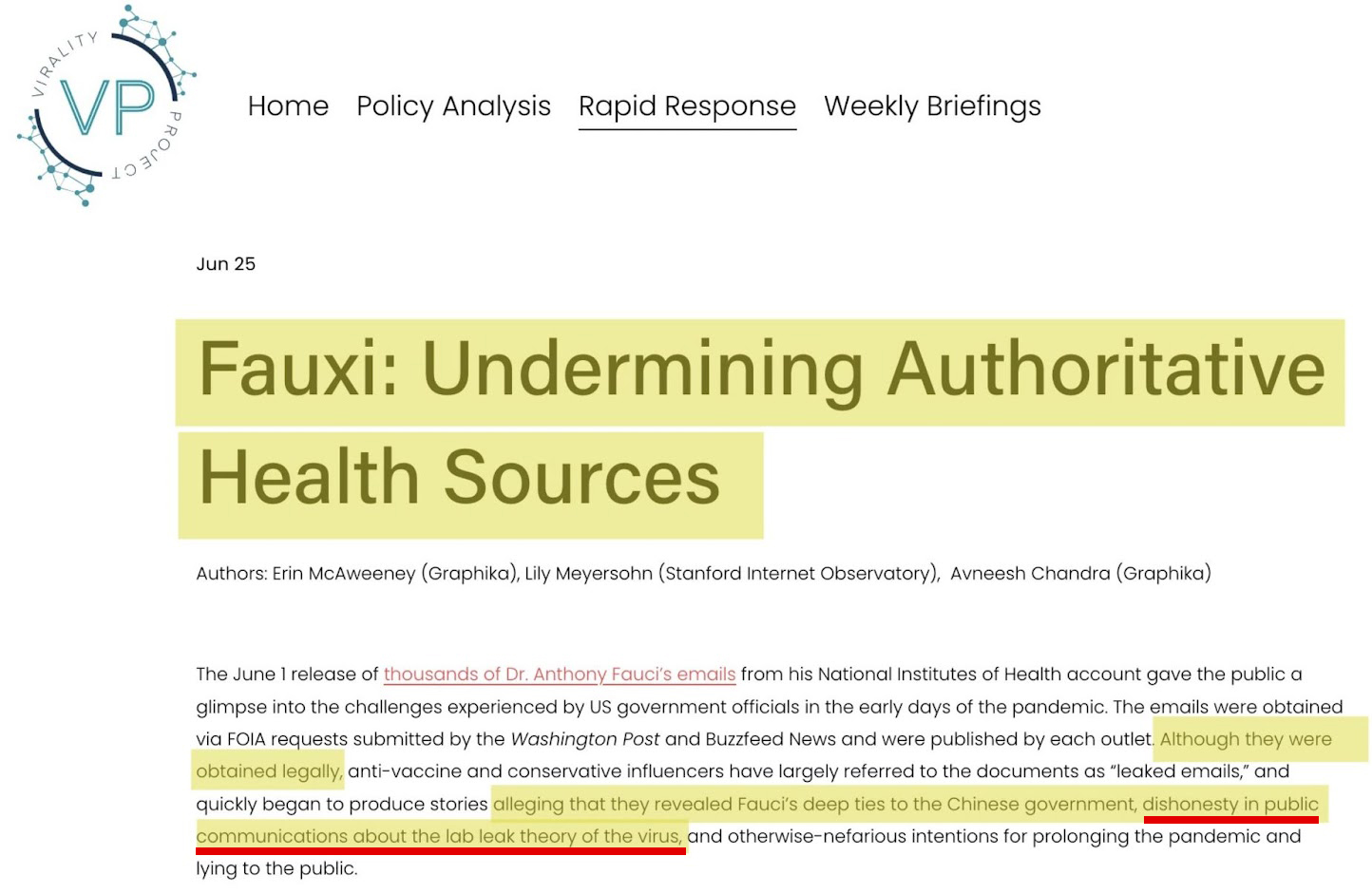
“This continual process of seeding doubt and uncertainty in authoritative voices,” Graphika wrote, “leads to a society that finds it too challenging to identify what’s true or false.”
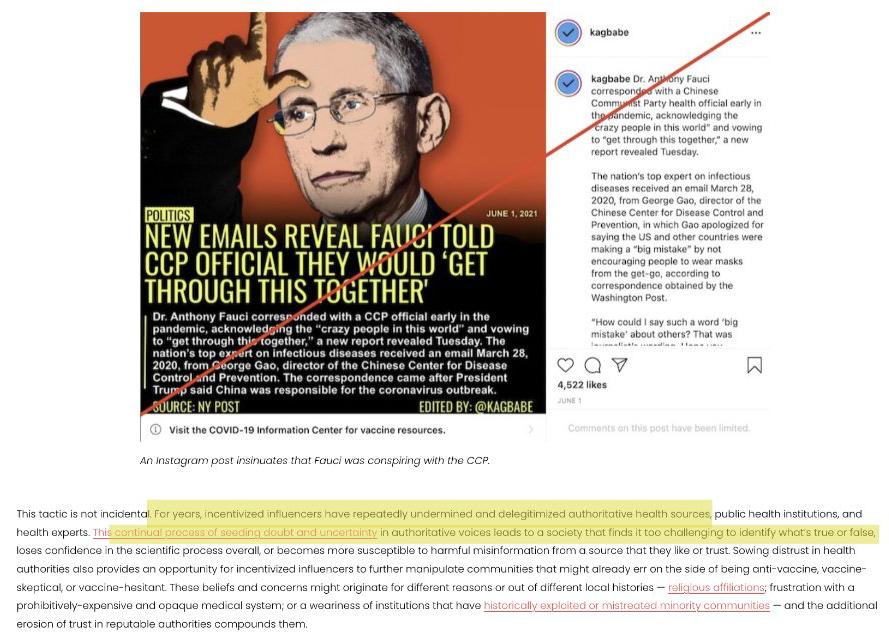
In other words, much of the information cited by Graphika as misinformation and disinformation wasn’t actually false, but they believed it was “too challenging” for people to discern between true and untrue information – and so the self-appointed arbiters of truth should decide what content to allow and what to censor.
Indeed, Graphika’s Virality Project would explicitly tell Twitter to censor “true” information, if true information would lead people to lose faith in government Covid measures.
Here it should again be noted that Graphika has received nearly $7 million in government grants and contracts, straight from the very Pentagon that would go on to spearhead the Covid-19 response. That means millions of dollars in public funds were taken from conservative taxpayers, whom Graphika then turned around and targeted as “spreaders of misinformation.” It also means the DOD, which took the lead role in Operation Warp Speed’s vaccine development effort, ended up funding firms who censored online criticism or questions about the DOD’s vaccine development efforts.
Which is a disturbing coincidence, on its own.
One of Graphika’s primary benefactors – according to its own website – has been the Defense Department’s Minerva Initiative. The Minerva Initiative is a controversial Pentagon research program dedicated, in effect, to the study of psychological warfare and the science of modifying the behavior of social and political groups overseas. Minerva Initiative cohorts provide guidance to DOD, for example, about how to stop citizen opposition to crisis governance measures – not unlike opposition government pandemic policies – and how to secure “citizen buy-in” so the state’s “accepted authority” is unchallenged.
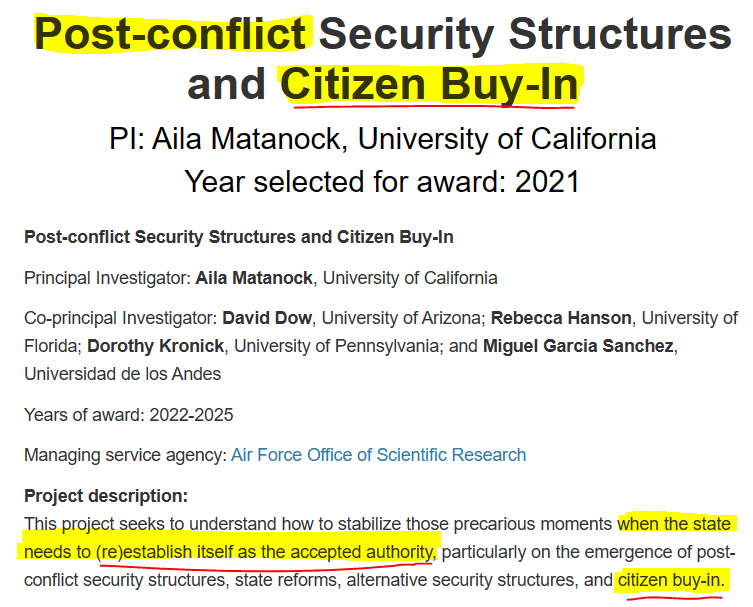
For more on Graphika and Minerva Initiative, see here.
In 2018, Graphika contributed to a Senate Intelligence Committee Report alleging that Russia undermined the integrity of the 2016 election. In its Senate report, Graphika claimed to have uncovered “unusually rich detail the scope of Russia’s interference not only in the 2016 U.S. presidential election but also in our day-to-day democratic dialogue.” Just in time for 2022 midterms, Graphika managed to generate the bold headline “Suspected Russian trolls use political cartoons to denigrate Democratic candidates as midterms approach” – a non-committal claim (“suspected”) based on frightfully thin evidence (cartoons posted in a chatroom) – just days before Americans voted in November 2022.
Graphika’s formal censorship work on Covid came later as part of its involvement with the Virality Project. Twitter Files author Matt Taibbi accurately described Virality Project as “an oligopoly of would-be corporate competitors organized quickly behind a secret, unified effort to control political messaging.”
Graphika is also a member of the Election Integrity Partnership (EIP), a “counter-disinformation” collective also heavily involved in pushing the debunked Russian collusion hoax. EIP worked directly with tech platforms to throttle narratives and outright ban US citizens accounts supposedly spreading misinformation during the 2020 election cycle. 100% of the accounts EIP targeted as “repeat misinformation spreaders” were conservative:
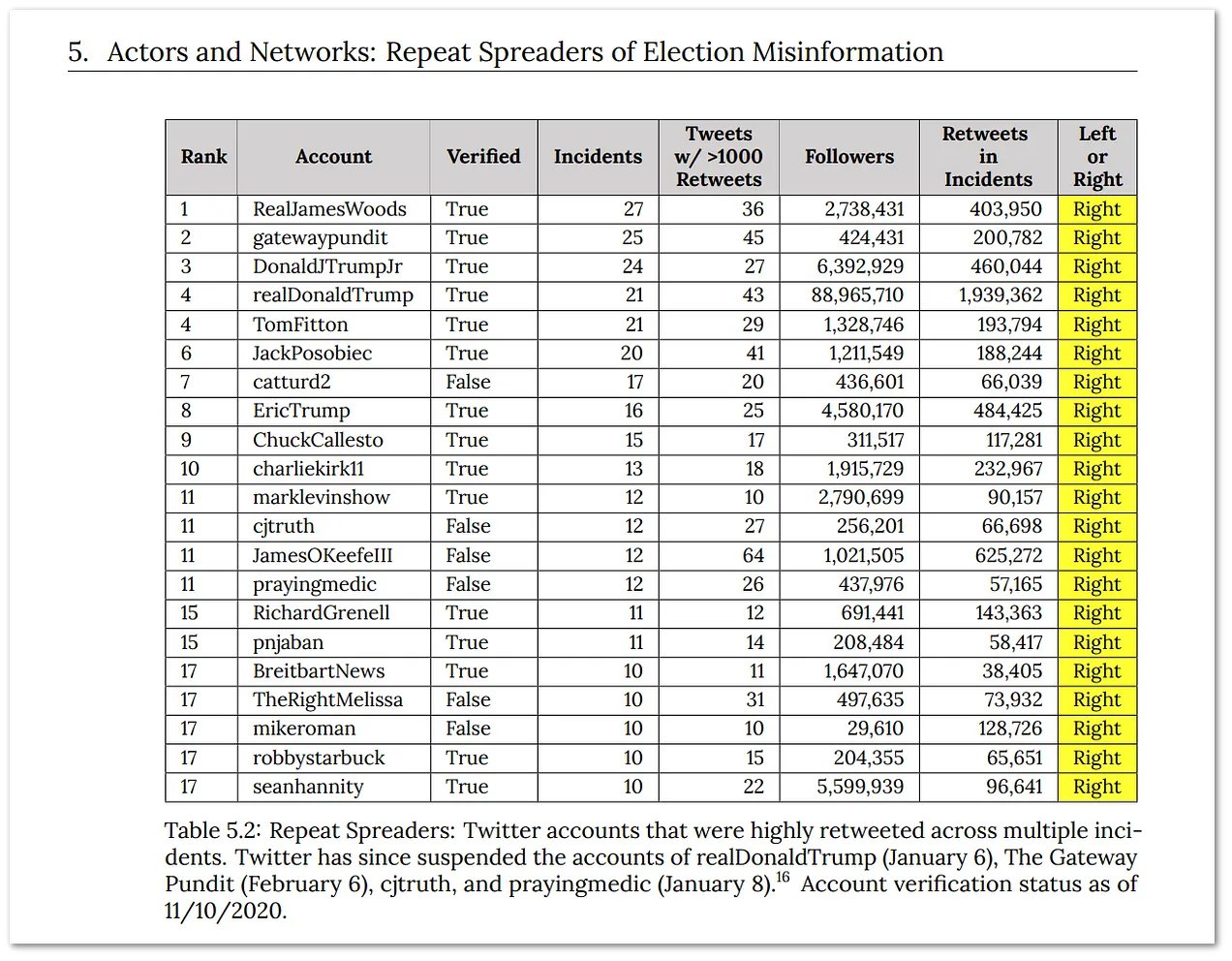
For a taste of how nakedly partisan and politically biased Graphika’s judgments about “disinformation” are, below is a censorship training seminar conducted in June 2019 by censorship industry heavyweight Ben Nimmo, who would join Graphika’s disinformation mapping team just two months after the video below:
Disturbingly, in 2021, Graphika was awarded with nearly $5 million in government grants (its most ever) from the Pentagon in 2021 – an apparent tacit approval of its 2020 election censorship and a boon for Graphika’s budget to do more censorship work.
With so much Defense Department funding pouring into Graphika, troubling questions are now raised as to why Graphika thought to invest so much time and expense tracking online narratives in December 2019 about “pneumonia-like symptoms” in Wuhan, China — before anyone in the federal government or even the WHO itself ostensibly knew the a novel coronavirus even existed. Somehow, Graphika was busy tracking dissent from the “official government narrative” on Covid origins before that official narrative was even declared by the government.
Such questions are made all the more pointed by the fact that Graphika is staffed by a revolving door of former Pentagon, CIA and NSA officials:
Graphika is staffed in large part by former intelligence agents from the alphabet soup of three-letter agencies in Washington.
Chief among these is strategy executive Chris Bane. Prior to joining Graphika, Bane spent 24 years in the CIA and seven in the U.S. Army, where he became an infantry and chemical officer. Another former spook is the director of federal programs, JoAnn Perry, who served for three and a half years at the CIA as an intelligence analyst advising policymakers on Middle Eastern affairs. Meanwhile, Lauren Pencek, the company’s vice president of finance and operations, worked at the NSA, eventually rising to become the agency’s director of corporate strategy. Before her time at the NSA, she worked for four years at arms manufacturer Northrop Grumman
Graphika is staffed in large part by former intelligence agents from the alphabet soup of three-letter agencies in Washington.
Chief among these is strategy executive Chris Bane. Prior to joining Graphika, Bane spent 24 years in the CIA and seven in the U.S. Army, where he became an infantry and chemical officer. Another former spook is the director of federal programs, JoAnn Perry, who served for three and a half years at the CIA as an intelligence analyst advising policymakers on Middle Eastern affairs. Meanwhile, Lauren Pencek, the company’s vice president of finance and operations, worked at the NSA, eventually rising to become the agency’s director of corporate strategy. Before her time at the NSA, she worked for four years at arms manufacturer Northrop Grumman

Michael Benz is the Executive Director of the Foundation for Freedom Online. Previously, Mr. Benz served as Deputy Assistant Secretary for International Communications and Information Technology at the U.S. Department of State. Follow him on Twitter @FFO_Freedom.




